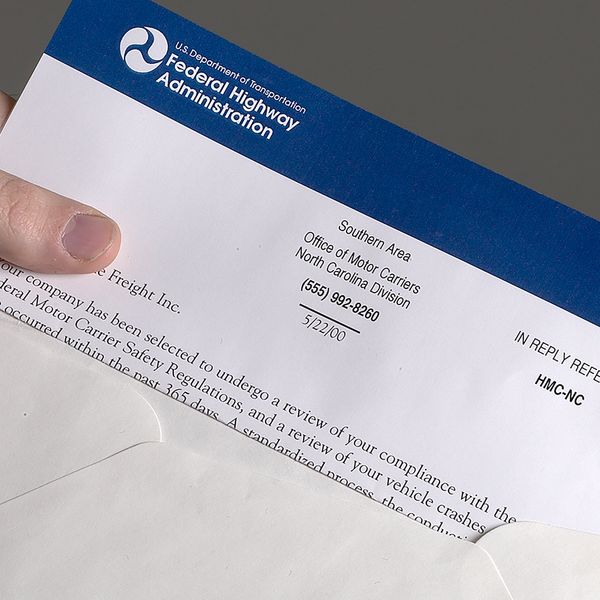Fines are up: Avoid penalties by prepping your paperwork
For the second time in four months the FMCSA has increased its fines, this time by 1 percent. It’s a small change that can have a big impact.
The increase is tied to inflation and is required annually by law. The increase for 2020 was late; it wasn’t issued until January 1, 2021. The increase for this year went into effect just four months later, on May 3, 2021, thus resulting in two increases in a single year.
The latest increase was relatively small. For example, the maximum penalty for a recordkeeping violation increased by just 10 dollars, from $1,292 to $1,302. Violation of a non-recordkeeping rule — such as an hours-of-service limit — increased from $15,691 to $15,876.
Violations add up
A single violation may be little cause for concern and will likely not result in a fine. With multiple violations, however, the penalties can really add up.
That’s most clearly the case with paperwork violations. You probably won’t be fined for missing a single driver’s log, for example. Missing multiple logs for several drivers across many months, however, could easily result in a five-figure penalty.
Why? Because each recordkeeping violation carries a fine of up to $1,302.
Don’t misinterpret ‘48 hours’
You avoid such fines by having the right records available at the right time. Unfortunately, many carriers believe they have more time than they actually do.
FMCSA rules say you have 48 hours to get a requested document ready for inspection at your primary business location. However, that isn’t 48 hours from the time an auditor asks for a specific document in the middle of an audit. Rather, the 48-hour clock starts ticking when you receive a letter or email informing you of the records needed during the audit.
For example, the request might ask for all drivers’ hours-of-service records. Then, during the audit, the investigator may ask for logs from specific drivers, and you would be expected to have those logs at the ready.
The price for failing to produce a requested document? Up to $13,000.
(Note that if you’re given a verbal request for a document that was not part of the original request and you don’t have it on-site, you’ll have 48 hours from the verbal request to present the document.)
Test yourself
The best way to tell if your recordkeeping system is up to task is to perform your own mock audit. Inventory your records (whether paper or electronic) and determine if you could get them to your main office location in 48 hours or less.
Keep in mind that some records may need to be obtained from third parties, such as your fuel card vendor or electronic logging device (ELD) provider (for IFTA and IRP miles). Can they get you the records on time?
A mock audit can help uncover inefficiencies and missing documents and help prevent penalties during any real DOT investigation or litigation.
Key to remember: FMCSA fines have increased again. Fines are multiplied by the number of documents you’re missing. Mock audits can help ensure your documents are ready to go in the event of a real DOT audit.





















































